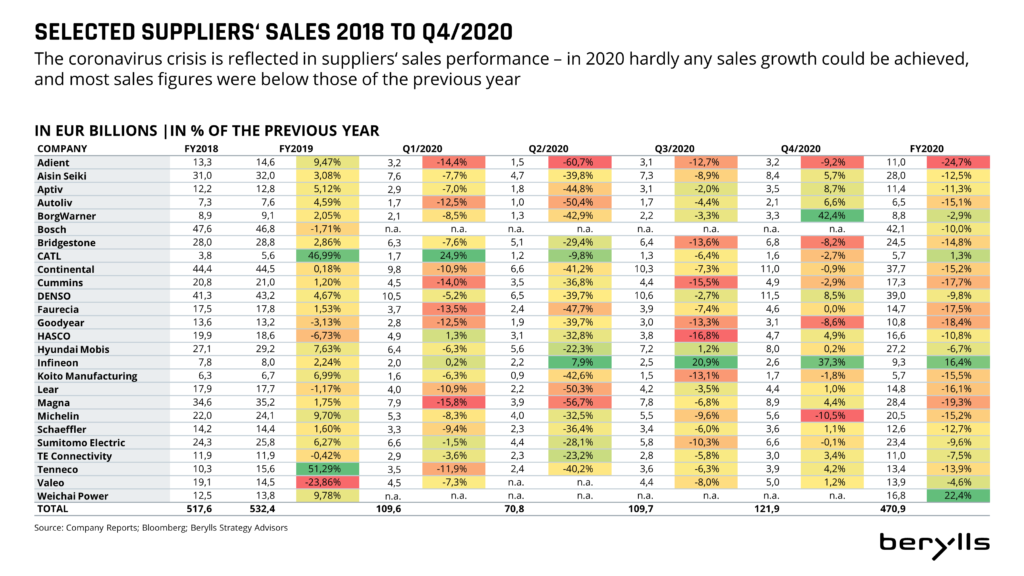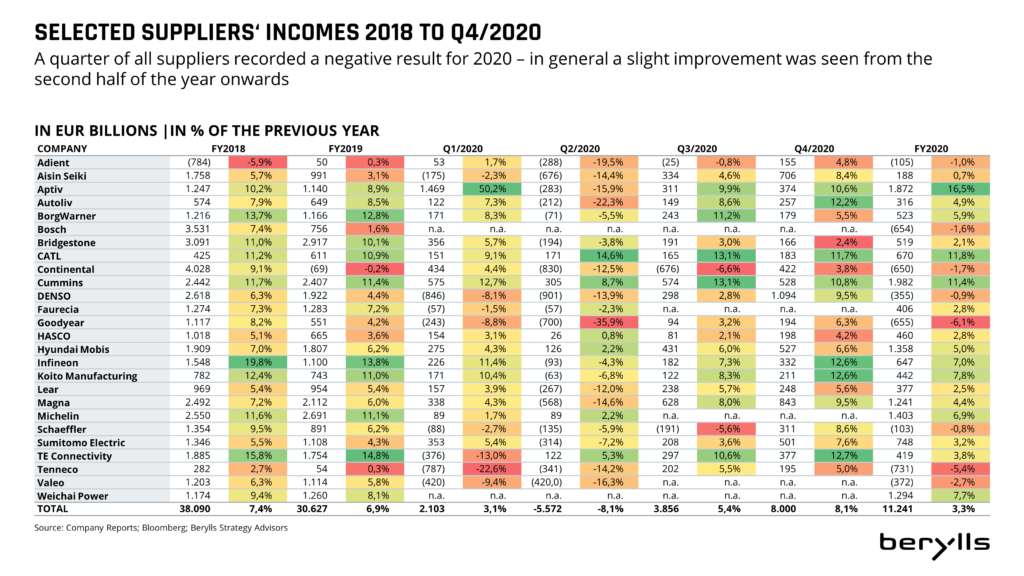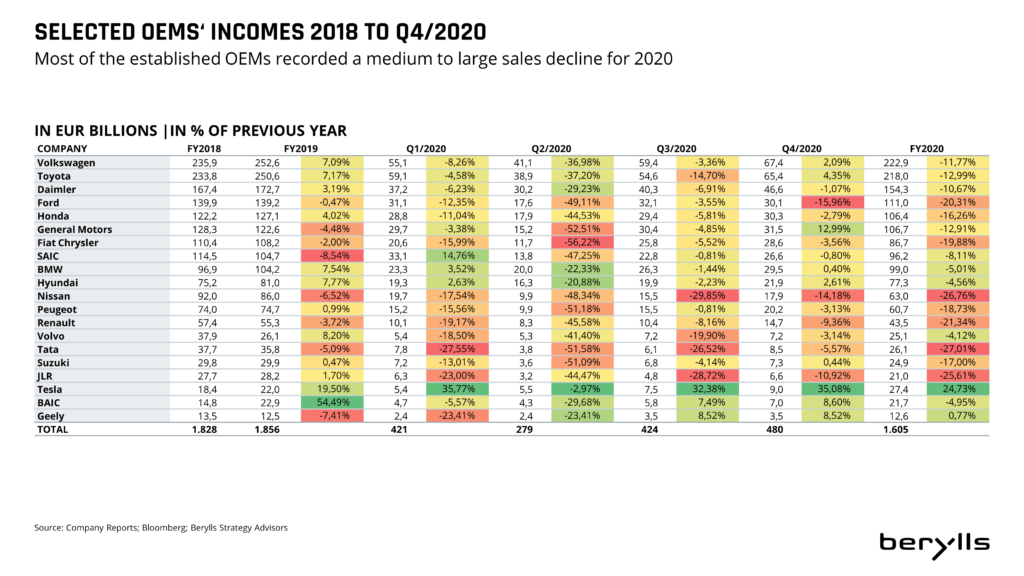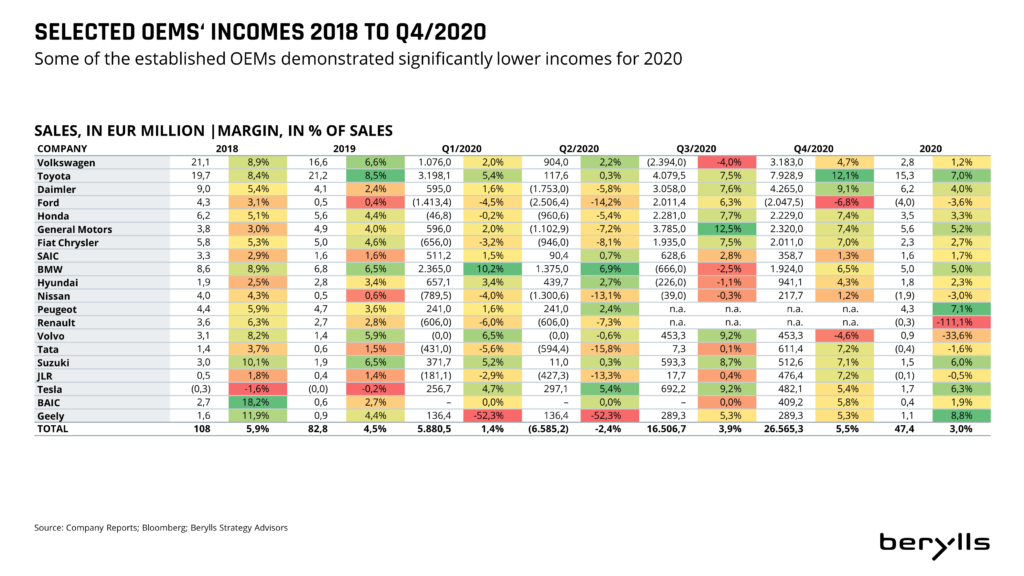DACH Automotive Industry
Berylls survey of M&A transactions in the automotive industry (DACH)
he Covid year 2020 has had a significant effect on company takeovers by automotive companies in German-speaking countries. This is shown by Berylls Strategy Advisors‘ annual survey of M&A transactions in the mobility industry. The number of transactions has fallen by 23 per cent in comparison with the previous year and stood at 226 deals (293 in 2019).
The structure of transactions has changed in just about all dimensions, and this is clearly reflected in the attitudes of buyers and sellers in the crisis year and towards the automotive industry in general. On the supply side (sellers) there was little willingness to sell (one’s) company. The “current trading“ and expectations of growth and results were bad in 2020, with the result that even for attractive companies a seller would obtain a bad selling price. Supply was increased by “forced“ purchases: in 2020 the number of companies purchased from insolvency nearly doubled (11 per cent of all company sales), compared with the average in the previous three years. Furthermore, a good 10 to 15 per cent of companies were offered on the market under pressure from investors. Admittedly the average size of mobility companies sold increased, but the prices (equity value) were considerably lower: about 25 to 30 per cent below the long-term average of previous years.
Automotive companies with a “classic” business model were more difficult to sell (-34 per cent) than those with “digital“ (-13 per cent). Classic engineering service providers, automotive suppliers or mechanical engineering companies could be sold more rarely than in previous years. Start-up companies and players which focus on e-mobility, are internet based, offer innovative mobility concepts or are focused on digital infrastructure, were considerably easier to sell.
The financial investors’ share has decreased slightly in 2020, by around -5 per cent. Also fewer private equity investors have contributed growth strategies in acquisitions. As ever, when it comes to classic buy-outs the automotive industry is known to be very difficult terrain. On the other hand, PE institutions with clear focus on special acquisitions are going places, on the one hand with takeovers of insolvent players, on the other with suppliers, mechanical engineering companies and the downstream sector, which are supported by banks‘ workout departments.
The field of buyers from abroad has also become considerably smaller. In 2020, 75 per cent of buyers came from German-speaking countries, another 10 per cent from the rest of Europe, and the rest from the Far East or US. Most notably, Chinese, Japanese, and US Americans have stayed away from the German market during the past year. The number of Chinese buyers has halved since peak value was reached in 2016 (19 transactions and 9 takeovers).
Interest in mobility companies has been growing since the 4th quarter of 2020. Both financial investors and strategic buyers are active again on the market. A complete recovery is not yet in sight. Berylls is anticipating a peak year for sales in 2023 at the latest. The transformation will result in numerous carve-outs for suppliers who were pushed into the background by the Covid crisis. Prices are rising again slightly, and above all the financial investors, who account for about 20 per cent of all takeovers, will be thinning out their automotive portfolios and focusing on new acquisitions.




Berylls Strategy Advisors would be happy to support you in this key decision process.
Arthur Kipferler complements the expertise of the Berylls partner team in the fields of market & customer, technologies, sales, and digitalization, as well as in the development and implementation of corporate, product, and regional strategies.